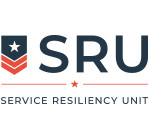We understand our responsibility to help protect the environment. We seek to minimize the environmental impact of our operations, and we are committed to complying with environmental laws and regulations.
Environmental Management
Each of our inpatient facilities has a risk manager and a physical plant director. Together, they manage the risks related to hazardous materials and waste and ensure effective environmental management at their facility. We have detailed policies, trainings and procedures regarding the storage, handling and disposal of waste products, hazardous waste and other regulated materials to ensure compliance with all applicable laws and regulations. For The Joint Commission (TJC) accredited facilities, we also conduct external audits for compliance with TJC hazardous waste regulations.
Our Risk Management Incident Reporting program provides for the immediate reporting of any unsafe storage or improper disposal or release of a hazardous or toxic substance.
Reducing Our Environmental Impact
In addition to adhering to environmental laws and regulations, we also look to reduce our biggest overall environmental impact: the use of energy in our buildings.
Mechanical-Electrical-Plumbing (MEP) Systems: For all our new construction and renovations, we specify the use of MEP systems that achieve facility energy performance higher than typical systems. We implement data-driven designs in new buildings to achieve low energy use targets that are 20% more efficient than typical behavioral health hospitals.
Lighting Designs: In our new construction and renovations, we specify lighting designs that typically are over 30% more efficient than code and include all LED (Light Emitting Diode) lighting.
Heating, Ventilation and Air Conditioning (HVAC): We use rightsizing to minimize reheating and power used.
Plumbing: Our new building designs have plumbing systems that consume 30% less water than code minimum requirements.
Energy Conservation: All newly constructed Acadia hospitals exceed the requirements of the IECC (International Energy Conservation Code). Our corporate headquarters are in a LEED-certified building.
Task Force on Climate-Related Financial Disclosures (TCFD)
Acadia Healthcare is committed to providing transparency on our climate change-related risk management. The TCFD has developed voluntary, consistent climate-related financial risk disclosures for use by companies in providing information to stakeholders.
Strategy
As a healthcare provider, we do not believe climate change poses a significant financial impact on our business. However, we evaluate how we could be affected by climate change-related issues such as energy prices, extreme weather and changing regulations.
Regulatory Risks: We do not currently view climate change as a significant business risk; however, it could pose regulatory risks such as through potential future carbon disclosure and compliance requirements, as well as reputational risks from passively addressing climate change issues. Possible carbon tax or regulatory incentives to encourage the use of renewables could affect energy costs. However, as a healthcare provider that offers a climate-resilient service, we do not expect this would have significant impact to our business and financial performance.
Physical Risks: We take any potential of business disruption which might occur seriously. Some of our facilities are located in areas prone to hurricanes or wildfires. Natural disasters have historically had a disruptive effect on the operations of facilities and the patient populations in such areas. Our business activities could be significantly disrupted by wildfires, hurricanes or other natural disasters that could be made more frequent and severe by climate change.
Reputational Risks: We monitor industry-focused information sources on evolving risks and evolving litigation patterns involving the industry. We also track environmental concerns raised by shareholder proposals at companies and engage our stakeholders. On a regular basis, risks and responses are reviewed as part of the overall sustainability-risk evaluation during our annual strategic meeting.
Governance and Risk Management
Our Board of Directors has ultimate oversight of the material risks that could affect our business and results of operations. Our senior management team and Board of Directors actively manage and mitigate such risks, which include climate change–related and other environmental risks.
Such risk management topics and the mitigation process are regularly reviewed and discussed between our management team and cross-functional executive committee on a cross-organizational scale. The consideration of these risks is integrated as part of our operations decision-making process in all aspects of the business. The management team and cross-functional executive committee report to our CEO and Board of Directors regularly.
Metrics
Our locations monitor energy use and efficiency. We do not currently disclose company-wide greenhouse gas emissions data.






